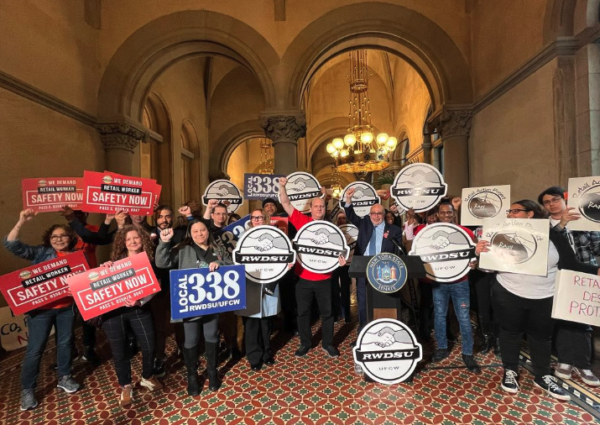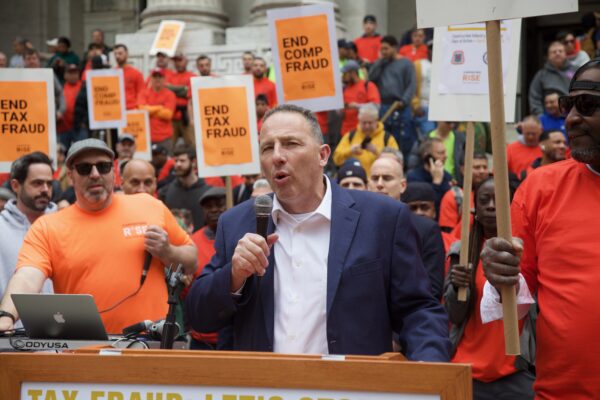June 3, 2015
By Joe Maniscalco

New York, NY – The debate over reforming the city’s controversial 421-a tax exemption program is largely being portrayed as an all or nothing proposition. But as hearings held this week demonstrated, there’s a lot more to the story than the tightly framed narrative the de Blasio administration is trying hard to push.
Governor Cuomo muddied already murky waters when he took the opportunity to cross the mayor yet again – this time on grounds that Hizzoner’s plan to reform the 421-a tax abatement program unduly favors big-time affordable housing developers.
New York’s building trades, who justifiably abhor aspects of de Blasio’s 421-a reforms because they actively withhold important prevailing wage mandates from construction workers, welcomed the governor’s jabs.
The de Blasio administration has fired back, however, insisting that Albany really favors a straight extension of existing 421-a rules — something that no one truly supportive of more affordable housing advocates.
“The option of a straight extender is not an option,” Housing Preservation & Development Commissioner Vickie Been told the Committee on Housing and Buildings on Monday. “This proposal is not perfect. If we had tons of resources we could improve it. It is however, a game changer.”
Even the most skeptical members of the Housing & Buildings Committee seemed to be at least open to the administration’s high stakes premise.
“It’s a better plan than the last one, but it’s still not a good plan,” Councilmember Antonio Reynoso [D-34th District] said.
The social justice activists, worker advocates and members of organized labor who waited hours for their chance to testify before a skeleton crew of Housing & Buildings Committee members, however, suggested that the discussion over 421-a really should be taking place outside its current box. Partly because the amount of truly affordable housing being created as a result of sought after 421-a reforms is actually a lot less than advertised.
“There needs to be prevailing wage standards as part of the requirement for all workers —both during construction and post-construction,” Teamsters Joint Council 16 representative Bernadette Kelly testified. “This tax break saves developers millions of dollars a year. New York City forgoes over a billion dollars a year in tax revenue — yet currently, 421-a creates a dismal amount of actual affordable housing and too often has subsidized luxury development, driving up neighborhood real estate values, and further exacerbating the housing crisis.”
Further stepping outside the current Cuomo/de Blasio slugfest, some indicated that the city might be better served scrapping the 421-a tax abatement program entirely, and using the $1.1 billion savings to build affordable housing through other creative means.
Bertha Lewis, head of the Black Institute, called the 421-a tax abatement program a “failure” that promotes “displacement” and “inequality.”
“We do not need to choose between good wages and affordable housing,” Lewis said.
Striking non-union construction workers who have worked on developments benefiting from huge 421-a tax breaks, also testified about the wholesale worker abuses that the absence of prevailing wage mandates and other worker protections allow.
“The mayor should understand that when he says he supports 421-a he is complicit in this exploitation,” said Dwight Shapiro, representative for the NYC District Council of Carpenters. “As a non-union worker I always worried about my safety and the safety of others. The mayor is denying all of these things.”
New York City Central Labor Council representative Anthony Thomas submitted testimony saying that the city and state have an opportunity to use 421-a tax benefits to not only spur economic expansion — but workforce development and poverty elimination as well.
“We believe labor standards and pathways to apprenticeships are the best way to raise the floor on wages and workplace standards, and one of the best policy tools for combatting wealth inequality,” Thomas said in a statement.
Tom Waters, a housing policy analyst with the Community Service Society, called the ongoing kerfuffle between Governor Cuomo and Mayor de Blasio a “counterproductive exchange” and “Not the best context to have the discussion.”
“The relevant comparison is not between old 421-a and a new version,” Waters said in a statement. “It is between the proposed new version and other means of reaching affordable housing goals.”



